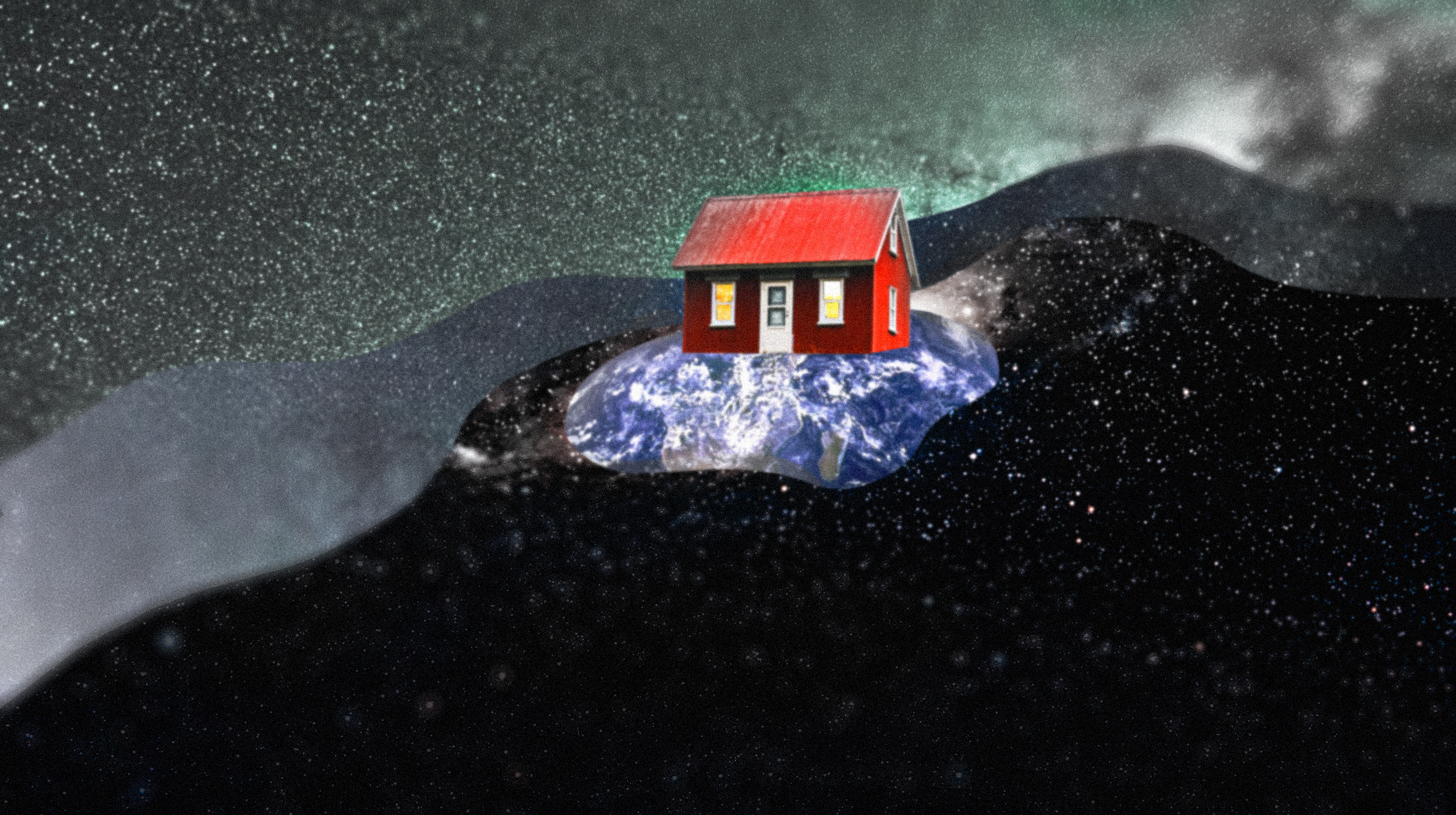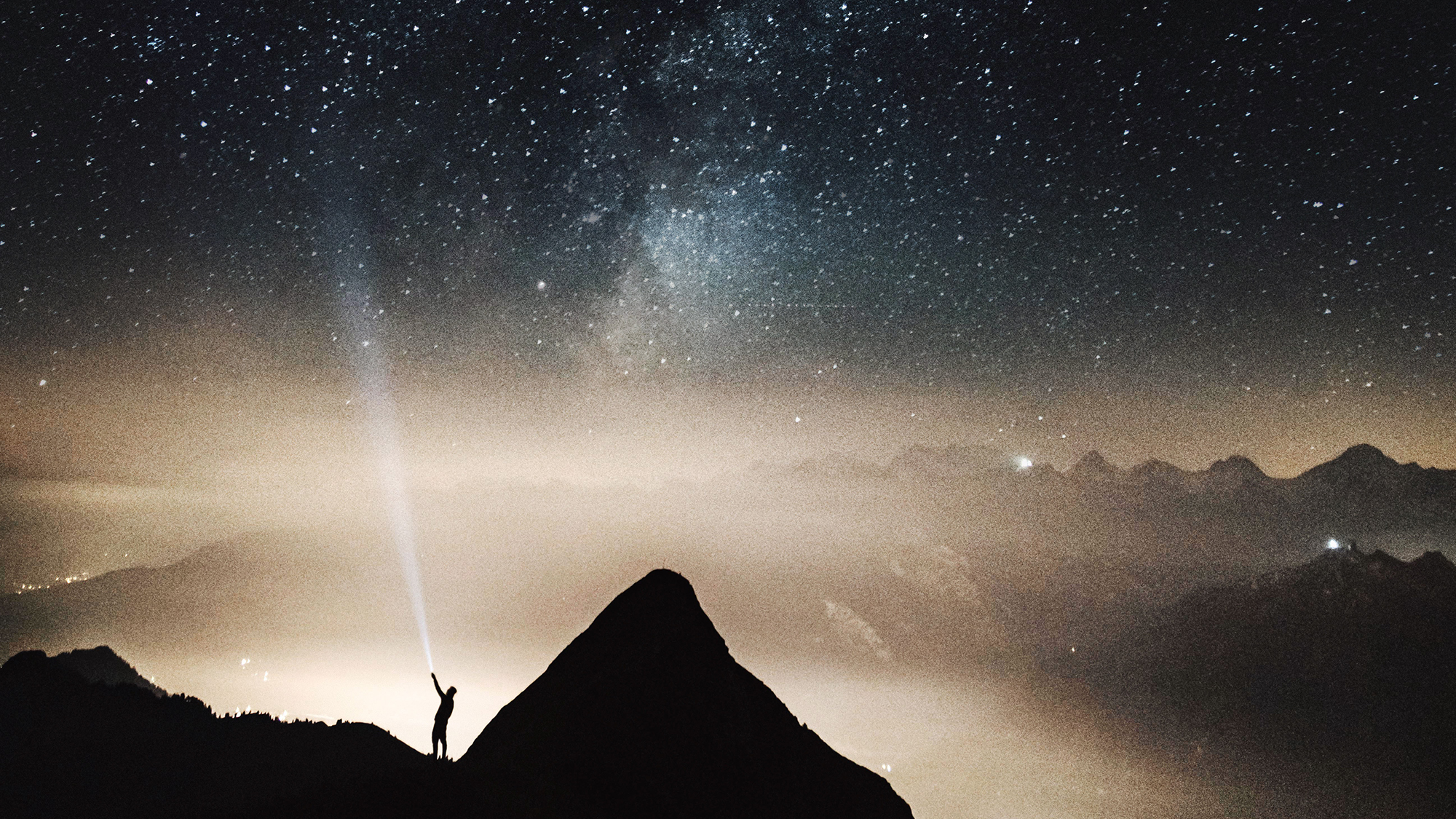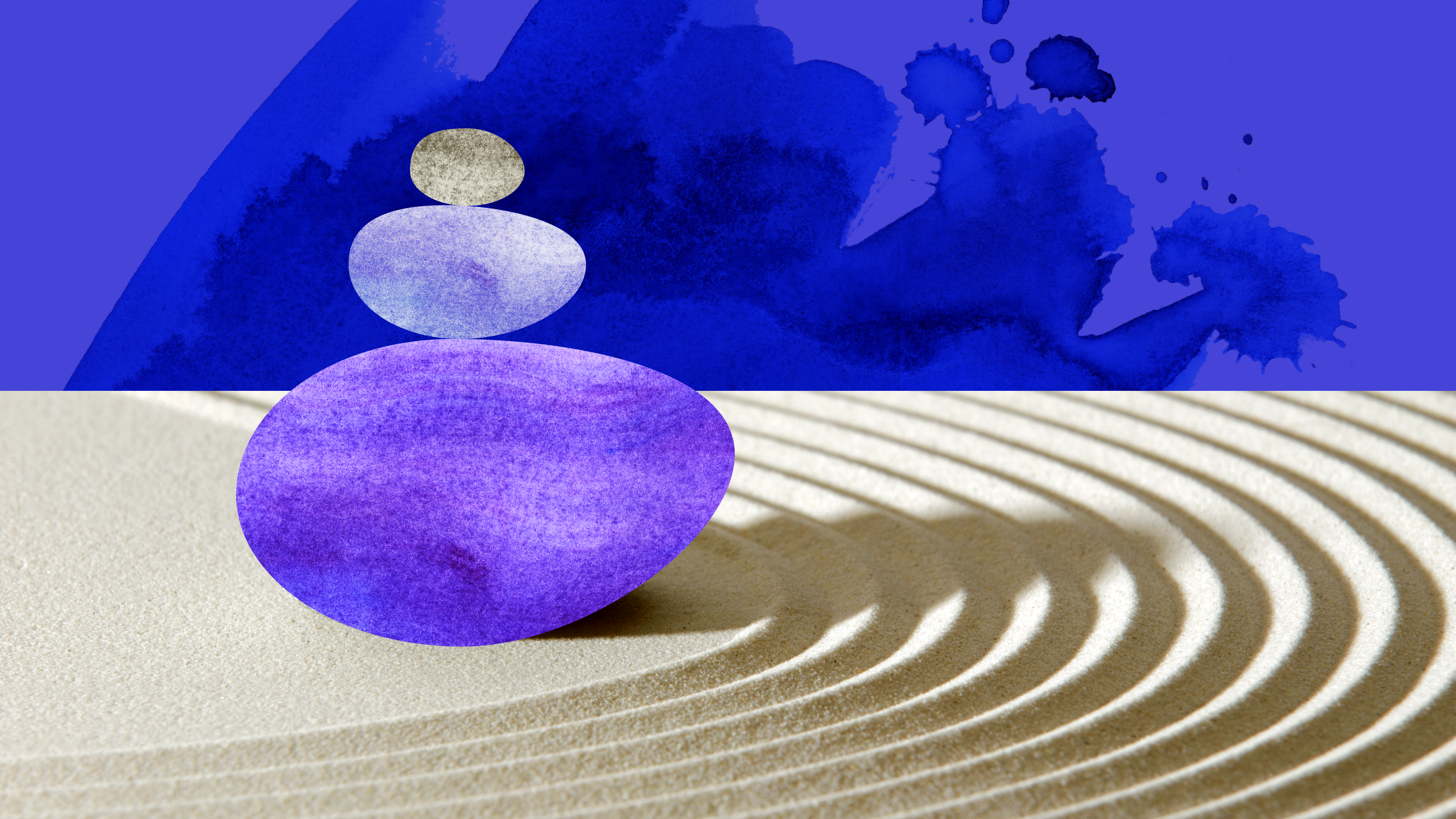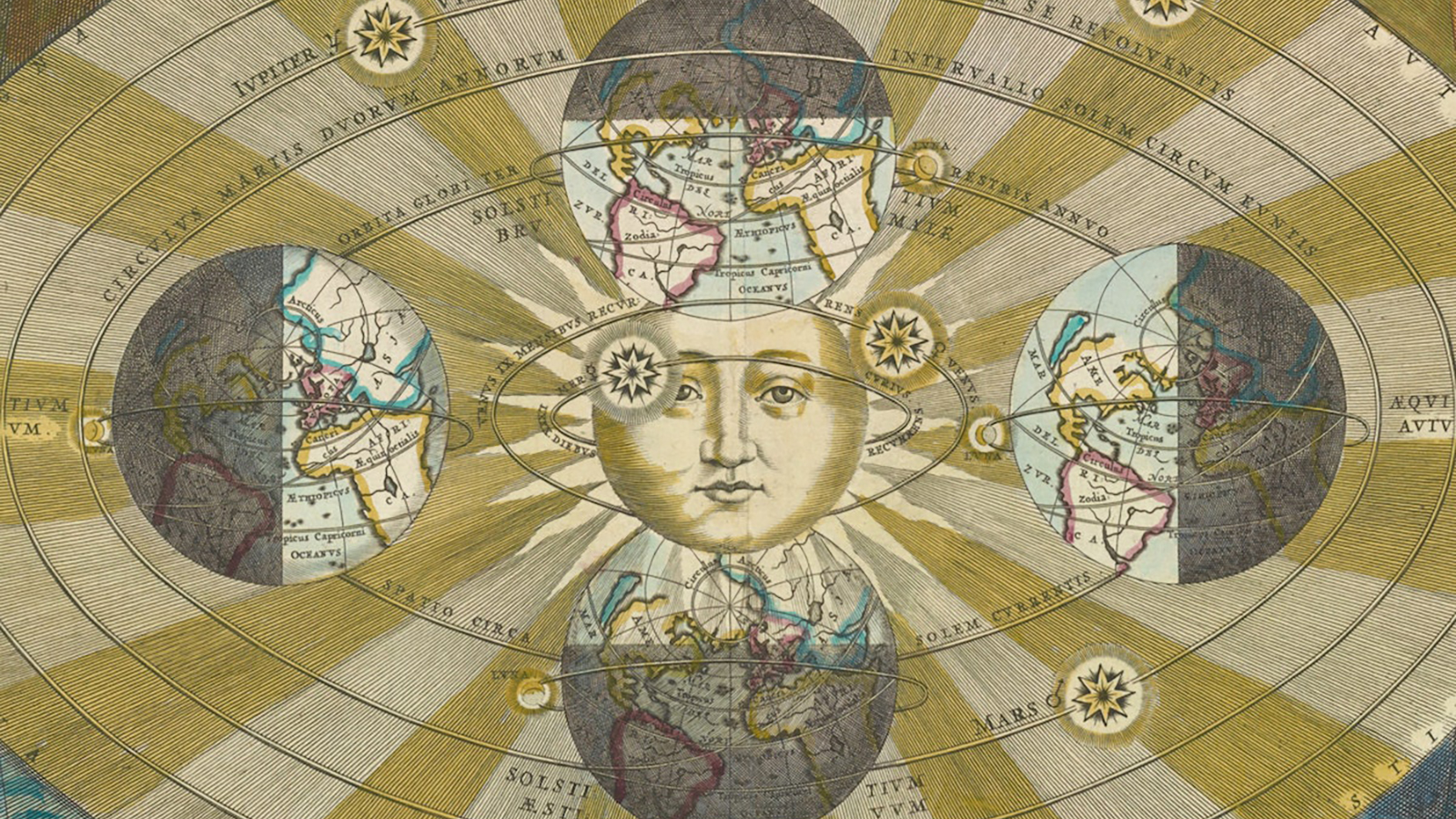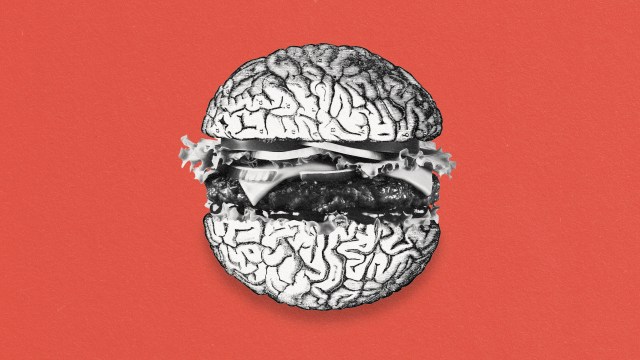The biggest story ever told
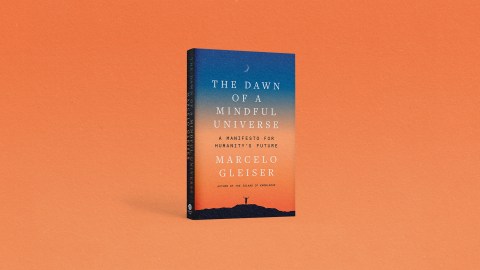
- Humankind is at a crossroads, and sustaining our project of civilization calls for a rethinking of our relation to the planet, each other, and the creatures with which we share this world.
- Clearly, dystopic fear is not working to promote change. In my new book, I propose a different way, anchored on a reframing of our current scientific understanding of the cosmic story and the rarity of our living planet.
- It starts with the understanding that our human voice is unique in the cosmos — life capable of telling stories. Without us, the Universe would fall silent. And without Earth, there would be no us.
The biggest story ever told is the cosmic story, the story that includes all others. Through our diligence and curiosity, we have uncovered parts of this story, the epic narrative that started 13.8 billion years ago in the event we call the Big Bang, the time when time began.
A manifesto for humanity
We hardly ever stop to think about all this, busy as we are with our daily affairs. But as I argue in my new book out this week, we should. In The Dawn of a Mindful Universe: A Manifesto for Humanity’s Future, I retell the cosmic story with a new focus, not just of particles interacting, galaxies and stars forming, and space expanding, but of our understanding that our planet is a rare oasis in a hostile Universe and that life is precious.
We are not the center of the Universe, but life is. I call this approach biocentrism and show that we need a new perspective of what it means to be human if we are to sustain our project of civilization. The alternative, as all the dystopic scenarios we are bombarded with everyday tell us, is self-destruction and social collapse. There is a way out, but it needs a change of mythic proportions. This doesn’t make it impossible, but it requires work.
I use the word “manifesto” in the subtitle on purpose: A manifesto is an urgent message, a call for action, a strategy to bring about change and transformation. We do need a revolution. Not one fought with weapons for a political cause, but one fought with a new mindset, one that protects our collective future under the banner of biocentrism. Biocentrism is the principle that a planet hosting life is sacred and that we, humans, must rise to the moral task of preserving our world and all life on it. The book asks us to rethink who we are — and the “we” here means all humans. In the book, I explain how and why we must embrace a new way of relating to each other and to all living creatures if we are to save our project of civilization and our home planet. This is no naïve dream but a must for our future.
The following are five takeaways that summarize some of the book’s arguments.
#1. We are not above nature but belong to nature
Over the past 10,000 years or so, we used our incredible ability to invent new things, to transform raw stuff, like metal and stone, into tools we then used to plant, build, and fight. We grew in number and spread across the globe, feeding on any natural resources we could find — initially wood, water, coal, and later oil and natural gas. We used these resources to tame forests and fields into giant plantations, to congregate in ever larger numbers into cities, and to heal diseases and to increase our lifespan. Technology changed the world and it changed us, and this change is still accelerating today.
All this progress gave us the false belief that we can control nature, that we can tame it like we tamed wolves into dogs, that we humans are above nature, and that we are more like gods than like animals. But this over-confidence is a serious mistake. We are very much part of nature, dependent on it in deep ways, and much more fragile than we may want to accept.
Just look at the deadly history of global pandemics and natural disasters to feel a bit humbler about our so-called power to control nature. A sick planet cannot support healthy creatures. If the air we breathe, the water we drink, and the food we eat are tainted, we will not survive. We are part of the life collective, interconnected with all forms of life. Science and technology can and should help us, but they cannot save us from ourselves. We need a new way of relating to the world and to each other, and this new way calls for more than just technological outputs. It calls for a new human.
#2. We must move beyond tribalism, as we all belong to a single tribe: humanity
But where is this “new human” going to come from? Since everything that matters to us comes from stories that we tell each other, this new human must come from a new story of who we are. And amazingly, this story connects us not only to our planet and to all living creatures on it, but to the whole Universe. We are, quite literally, creatures of the cosmos.
But first, we must rethink our tribal roots, and we must understand that despite our political and religious differences, we are a single species living on a fragile and rare planet. We humans need to belong to groups, and these groups often define our values and drive our actions. This is how it has always been, and it’s fine. Belonging gives us a sense of dignity and purpose.
The problem starts when a group, or a tribe, closes its doors to those who are different. A tribe protects, but it also attacks and jostles for power. We may belong to different tribes, from our families and communities to our sport teams and churches, but we are, first and foremost, the human tribe, living on planet Earth. The new human narrative I tell in my book breaks down the tribal walls that separate us: It makes the case that we need to work together if we are to protect our way of life and the planet that harbors it. Moving beyond our instinctive tribalism is not easy. It requires humility and an openness to those who think, look, and act differently than we do. Being open to the “other” can only enrich our experience of being alive, as we learn and grow not by conflict but by humble curiosity. Since we live on a single planet, we are all dependent on each other for our collective survival.
We must go into a global hive thinking mode. Everything begins with the understanding that life is a rare phenomenon in the Universe and must be protected collectively.
#3. Life is an anomaly in the Universe, not the rule
We don’t know how life on Earth emerged over 3.5 billion years ago, or if it exists elsewhere and in what form. But we do know that as stars live and die, they spread their atoms across space, becoming new stars and planets and, in our Solar System, becoming living creatures on planet Earth. So we truly are made of stardust. We and all living creatures are the interconnectedness of the nonliving with the living — atoms animated with the urge to exist.
What we are learning is that life is a true anomaly in the Universe, the exception rather than the rule. Look at our neighboring planets in the Solar System, all magnificent and amazing worlds, each different — but all barren, dead worlds. The chances of finding life on any of the planets and moons of our Solar System are vanishingly small. Even if there is life elsewhere, it probably will be very simple, amoeba-like. If there are other creatures out there capable of inventing tools like we can — and we don’t know one way or the other — we haven’t seen them or found any convincing traces of their existence. Sure, we should keep looking, but we also must come to terms with our cosmic loneliness.
#4. The Universe only has a history because we are here to tell it
The fact that we know that life is rare in the Universe, and intelligent life even more so, makes us different. We are matter capable of telling stories. We are the cosmic storytellers, the ones that give the Universe a narrative and meaning. If there are other voices out there, they will tell a different story, not ours. Life on Earth is unique: If there is life elsewhere, it will be different. We can state with confidence that we are the only humans in the cosmos.
Without our voice, the Universe would unfold into meaningless forms created and destroyed through the ages: dead, silent, aimless. We humans know time, space, love, life, and death. We celebrate existence and are terrified by it. We build homes and weapons and spaceships; we build monuments to invisible gods and write poems about ineffable feelings. We look at the stars in search of our origins. We have a mysterious capacity for awe and wonder. We humans are the ones with the power to either destroy or protect our living planet and its biosphere. And the time has arrived to choose which path to take. We must choose with urgency and care. Without our voice, the Universe would fall silent.
#5. Biocentrism: Any living world is sacred
Since every tribe is united by a set of principles, what is the unifying principle of the human tribe? This is where biocentrism comes in, the principle that any planet that hosts life is sacred. The acceptance of our cosmic loneliness and the rarity of our planet is a wakeup call, ringing to awaken a new collective consciousness. I believe it to be the new unifying myth of our generation, with the power to go beyond tribal divides and bigotry, to lead us into a new era of human flourishing.
But for this to happen, we need to change how we relate to life and to the planet that allows us to exist. We are not above nature, and we don’t own it. We are a part of it and depend on it for our existence. Life is rare. We are rare. This planet is rare. Treasure life and planet and learn from Indigenous cultures and their sacred connection to the land. Let’s re-sacralize our planet. This is the moral imperative of our age. We owe this to future generations and to the life with which we share this planet.
